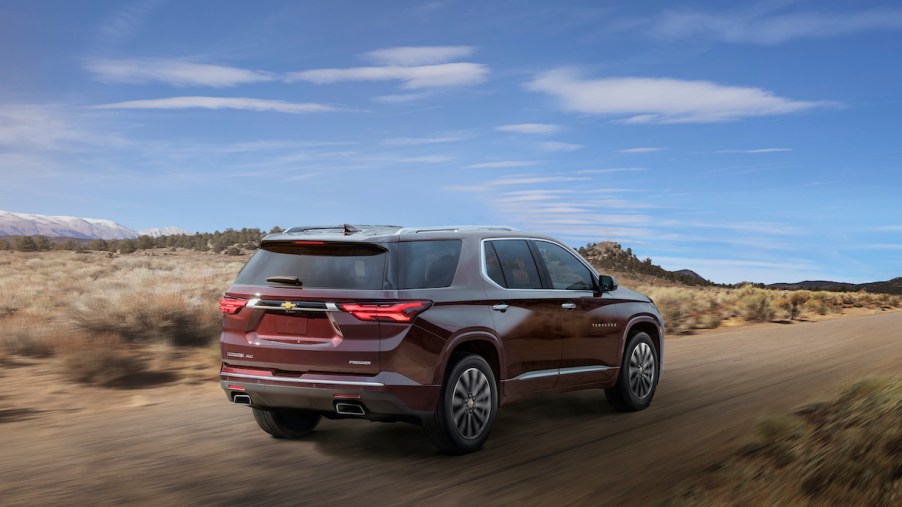
Chevy Traverse Models Could Give You A/C Trouble
It’s easy to say that A/C is optional until you find yourself without one. That’s when you realize how accustomed to a comfortable climate we’ve become. If you find yourself feeling a little nervous when the A/C doesn’t kick on as soon as you crank the car in the hot summer months, you might want to skip the Chevy Traverse.
Why shouldn’t you buy the Chevy Traverse? According to GM Authority, the Traverse has had more than its fair share of A/C problems. There are several reasons the A/C stops, and the potential fixes range from minor to extremely expensive.
Life is miserable without air conditioning
No one wants to go on a road trip in a car with no A/C. Oh, sure, you might enjoy telling your kids about how you had to suffer through it and dramatize it a little, but it’s no fun while you’re going through it.
Sitting in a puddle of your sweat, hearing your siblings whining, and rolling down the window only to be blasted by a hot breeze might not seem like a big deal now that it’s over, but do you want to relive that experience?
Not only does it make you miserable, but there are also potential health risks. Hot car deaths are a reality, and driving a vehicle with no A/C dangerously increases the risks. That’s why it’s crucial to purchase a vehicle with an A/C you know you can trust.
Which Chevy Traverse models have A/C problems?
While the Chevy Traverse isn’t known for being the most reliable of Chevy’s SUVs, not all the model years are entirely terrible. That said, the 2012 through 2015 models are the years you need to avoid.
The A/C tends to kick the bucket about 25,000 and 55,000 miles. In other words, about the time your warranty runs out.
There are multiple reasons why the A/C fails, and this includes the compressor, the automatic climate control system, the blower motor, the condenser, the evaporator, and the refrigerant lines. This can be quite frustrating when you take it to your mechanic to be fixed, and they have to check multiple problems. This can take hours, if not days, to diagnose.
Several owners took to the comments to express their frustration. One stated, “No AC issues with our 2013 Traverse with 130k miles, except when the traction control/stabilitrak issue rears its ugly head causing the AC to shut off, and randomly goes into low power mode for no reason. I’LL NEVER BUY ANOTHER CHEVROLET AGAIN!”
He wasn’t the only frustrated owner to vent. Another owner wrote, “As an owner of one, I can tell you this is an accurate article…”
Have things gotten better?
The 2020 model is out, but is it any better than the previous models? It appears so.
Consumer Reports was highly impressed with the 2020 Chevy Traverse during the road test and felt that it could compete with rivals such as the Honda Pilot. For owners who have declared they will never drive a Chevy again, this might not be enough to change their mind, but for owners new to Chevy, it could tempt them to give the 2020 Traverse a chance.
This is a significant change for the Traverse, and it has consistently placed at the back of the pack for years. It’s slowly creeping up toward the forefront of the group. This is thanks in large part to some much-needed changes.
It has a smooth ride and decent acceleration now, thanks to the 3.6-liter V6 engine. Chevy also took the interior to the next level, adding some refinement that the Traverse has sadly lacked.
So far, there have been no issues with the air conditioning. Perhaps Chevy has figured out what the problem is and took care of it before it became an issue.


